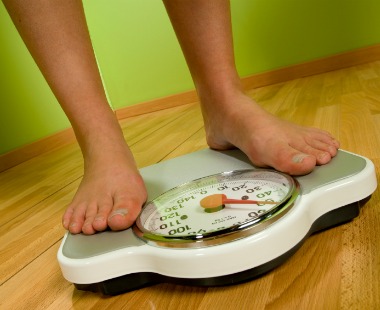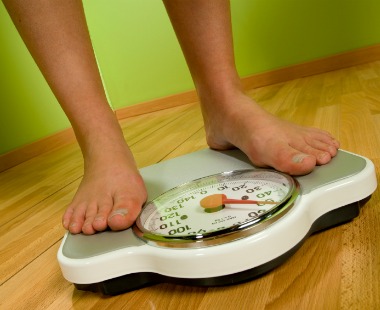Send your question to Umbra!
Q. Dear Umbra,
If I ever manage to lose these rolls and handles, will the toxic stuff I’m storing in my fat be released? Will I get sick in the process?
Theodora S.
Angel Fire, N.M.
 A. Dearest Theodora,
A. Dearest Theodora,
Yours was the closest I could find to a Halloween question this year, what with the health concerns this overindulgent holiday brings. Plus: Scary topic! Boo!
Before I proceed, the usual disclosure: I am not a health professional, nor have I ever played one (or even been in the running to play one) on TV. Please take my advice with a grain of salt, as it were, and consult your doctor for questions particular to your body.
That said: Our body fat does indeed provide a handy storage place for toxic stuff, including the industrial chemicals foisted upon us by the “conveniences” of modern society. The nasties kicking up their feet in our fat can include dioxin, PCBs, DDT, and other persistent organic pollutants — they prefer to go by their jaunty nickname, POPs. When we lose the fat, our bodies must process and excrete these frat-boy compounds, which are now happily splashing around in our bloodstream.
If all goes according to plan, our bodies will do this efficiently and effectively. However, a couple of recent studies have raised concerns that, especially in cases of rapid weight loss, this POP invasion can make a person ill or ill-feeling. So what are we to do?
Dr. Duk-Hee Lee, lead researcher of one study, suggests that we try to not become overweight in the first place. Which perhaps is why Dr. Lee works in a lab and not with people.
Other experts, including the good folks at the Pesticide Action Network (PAN), say we can help limit the POPs entering our system by eating wisely. Because POPs loiter in animal fats of all kinds, eating less meat and dairy and more vegetables will expose us to fewer of them. (Look, vegans! Another feather in your cous-cous cap!) Eating organic can also help; see PAN’s What’s On My Food database to get an idea of how many chemicals go into conventional products.
For those who are dieting, know that water and fiber are your friends when it comes to detoxification — and crash diets are not. As always, a balanced diet and exercise go a long way.
The bigger question, dear readers, is why our bodies and our food are full of poison to begin with. The answer is long and complex, involves terms like military-industrial complex, and should inspire rage. While there is now an international ban on many POPs, which have been linked to health issues including diabetes and cancer, some countries have been slow to come around, including the good ol’ U.S. of A. And the longer it takes to ban these chemicals, the longer they’ll be with us; they’re called “persistent” for a reason. To learn more, visit US POPs Watch or the Safer Chemicals, Healthy Families alliance.
Adiposely,
Umbra



